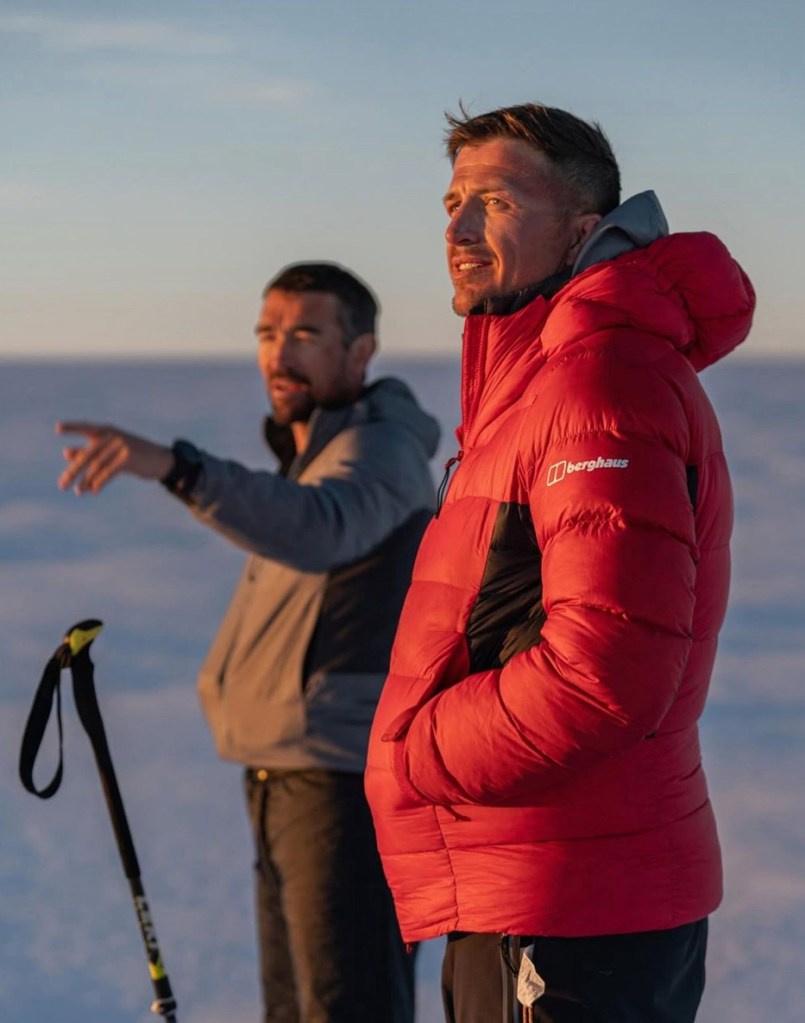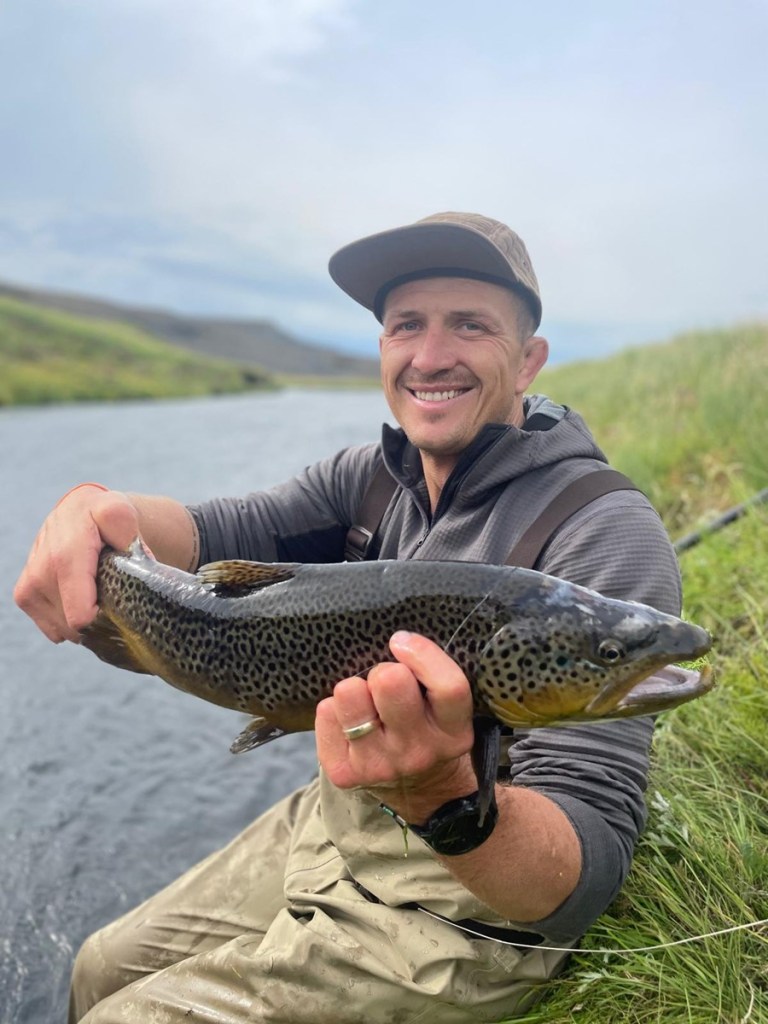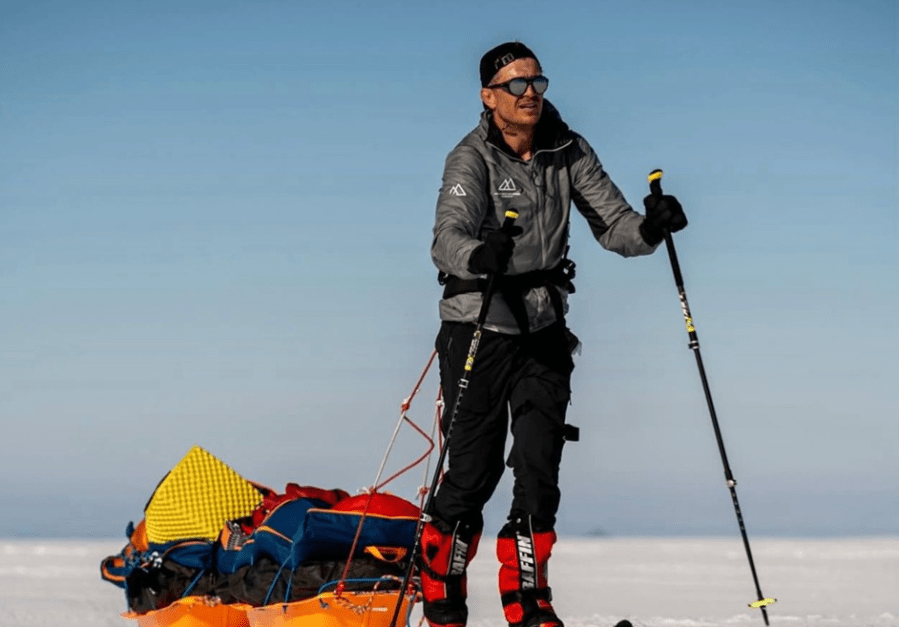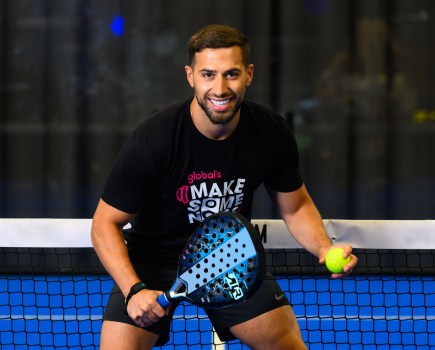A spinal injury cut short his rugby career, but Ed Jackson is climbing summits and challenging perceptions of disability and adventure
Ed Jackson is English former rugby union professional who played for a number of sides in England and Wales as a Number 8. His career was cut short by a severe spinal injury after diving into the shallow end of a swimming pool.
But remarkably, less than a year after breaking his neck, Jackson had climbed Snowdon. He created a not-for-profit organisation, M2M, standing for the millimetres he moved his big toe to the mountains he now climbs.
A keen fisherman, he credits the sport with a key part of his mental health recovery. Most recently, he has been working with the Environment Agency and its rod licence campaign.
Men’s Fitness: What challenges are you about to take on and how do you maintain focus?
Ed Jackson: I’m currently preparing for my next major climb — something that’s pushing my physical and mental boundaries even further than before.
These challenges are never just about reaching the summit; they’re about what you learn about yourself on the way up.
Staying focused comes down to purpose. I always remind myself why I’m doing it, whether that’s to raise awareness for spinal injury recovery, support others through M2M, or simply to keep proving that limits are often just in our heads.
Mindfulness, a strong routine, and surrounding myself with people who believe in the mission really help keep that focus sharp.
My next mission is Kyrgyzstan 2025. Alongside an incredible team, we’re aiming to reach a place where no human has ever stood before, true first ascent. It will be the highest first ascent ever attempted by people with disabilities, and it’s not just about the summit.
This is our chance to challenge global perceptions of disability and adventure. I’ll be documenting the whole journey on socials- every step, every setback, every summit.

MF: Do you think mental health is still a taboo subject for men and have you had to overcome any issues in opening up?
EJ: Yes, unfortunately, I do think it’s still a taboo for many men — but that’s changing, slowly. I’ve definitely had my moments where it felt uncomfortable to open up.
As someone who was in professional sport, vulnerability wasn’t really part of the culture. But after my injury, I had no choice but to face those mental battles and being honest about them has been the most freeing and powerful thing I’ve ever done.
The more we speak, the more we give others permission to do the same.
MF: How important is community to wellbeing and mental health?
EJ: Community is everything. When you feel part of something bigger than yourself, it gives you strength, whether that’s emotional support, shared goals, or just knowing someone’s got your back.
No one climbs a mountain alone, and the same goes for life. We all need a rope team.
MF: Looking back, how would you describe the role fishing has played in your life and mental health journey, and what advice would you give to others considering it as a hobby?
EJ: Fishing has been an unexpected but powerful part of my mental health journey. It’s one of the few times I allow myself to completely slow down. It’s not about the catch — it’s about being still, being present, and feeling part of nature.
My advice? Give it a go. You don’t need to be an expert. Just being by the water can have a profound effect on your mind.
MF: Can you tell us how fishing has helped you bond with friends and family?
EJ: Some of my best conversations with family have happened on the bank of a river or by a lake. There’s something about the calm, the lack of distractions, that opens people up.
You’re both there with a shared purpose but no pressure and that creates space for real connection.

MF: How does fishing offer opportunities for meaningful conversations and connection?
EJ: It’s one of those rare spaces where silence isn’t awkward, and when you do talk, it tends to go deep. Without phones buzzing or time pressures, it creates the right conditions for meaningful chats. It’s about quality time and catching fish is just an added bonus.
MF: How do you feel that being part of a community, whether through activities like fishing or tackling physical pursuits, helps you stay motivated and connected to others, especially when facing challenges?
EJ: Community keeps you accountable, inspired, and grounded. Whether it’s a climbing group, a fishing club, or even just a WhatsApp thread with like-minded people, having others to lean on and push you forward makes a huge difference.
When challenges come, you’re not alone, and that makes them feel a lot more manageable.
MF: Why should people buy a rod licence, how does it help accessibility to the sport
EJ: Buying a rod licence isn’t just about being legal, it’s about supporting the future of fishing.
That money goes into maintaining our waterways, making sure fish stocks are healthy, and improving access so more people, especially from underrepresented groups can experience the benefits of angling.
If we want to protect the sport and open it up to others, it starts with something as simple as that licence. Rod licence money helps keep our waterways clean and thriving, funds vital conservation work, and supports fish restocking programmes to ensure healthy, sustainable fish populations.
It also helps to tackle issues like pollution and invasive species, which threaten aquatic ecosystems.
• To find out more information on when you need a fishing licence, and how to buy one, visit: https://www.gov.uk/fishing-licences/buy-a-fishing-licence






